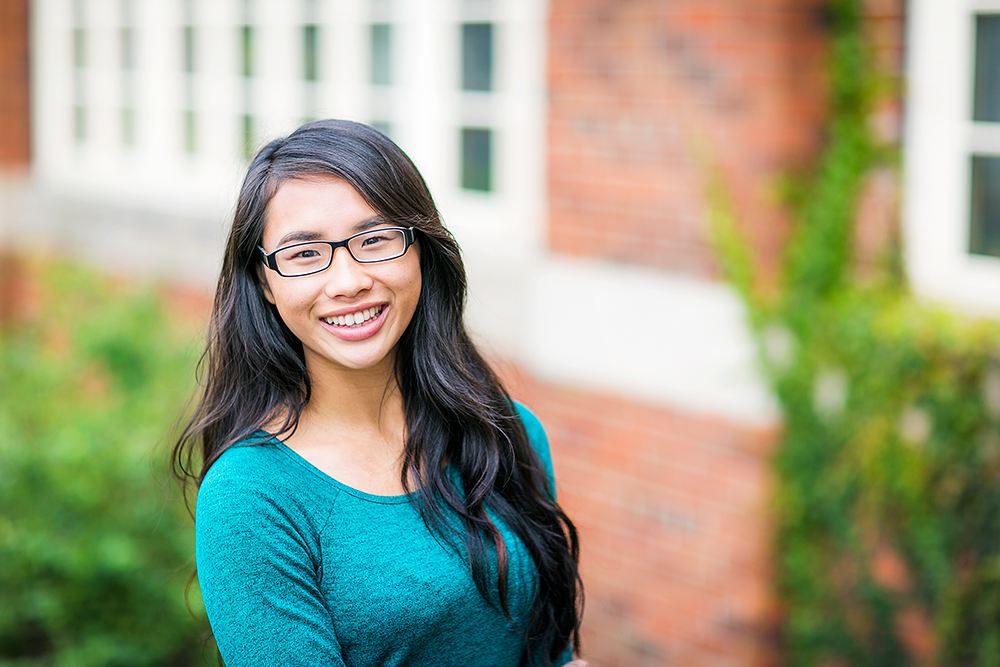When Julie Vang began her first year at the U, she searched for a sense of community on campus. She found it by residing in Hmong House—Tsev Hmoob—one of more than 30 living–learning communities available to University students.
“I am still friends with all of the people I met that first year, and we are all planning to graduate together,” says Vang. “Having that support from freshman year until now has really boosted my energy and growth.”
Vang’s parents are originally from Laos and emigrated from Thailand to St. Paul. As a family-oriented person with several siblings, Vang found the family social science major to be a natural fit for her career interests.
“I knew I wanted to do something with counseling so I tested out some different courses, and family social science was the best,” she says. “To understand family dynamics and have knowledgeable faculty teach you theory that can be related to reality—that sparked my interest.”
Vang connected with associate professor Catherine Solheim in family social science, who has years of experience with Thailand. Solheim was her faculty mentor in the TRIO McNair Scholars program, which gives first-generation college students a chance to explore research as a possible path to graduate school. Vang also worked with former McNair Scholar Veronica Deenanath, now a Ph.D. student in family social science, whose dissertation focuses on the experiences of immigrant, first-generation college students and their parents.
The themes uncovered in Vang’s research included students’ desires to maintain cultural roots, gain financial stability, and help people.
“I will be the first person in my family to graduate from college,” says Vang, “I value education a lot, and I want to give back to my community.”
Through a semester in Kenya, Vang gained valuable experience in community building. She took courses in the capital city of Nairobi and completed an internship working with a human rights organization that seeks equality for indigenous women.
“I didn’t experience culture shock as much as some other students because Kenyan culture is similar in some ways to Hmong culture, where large families and clans are common,” Vang says. “I could really relate to them.”
On campus, Vang has been a leader for Hmong women by serving as co-president of Viivncaus, a women’s group focused on creating a space for Hmong women to talk about issues they are facing. She also co-leads the philanthropy team at the University YMCA, which works on fund-raising events that support the YMCA’s education programs.
Now making plans for graduation and beyond, Vang is applying to higher education and counseling graduate programs. She was drawn to her path by participating in TRIO’s McNair Scholars program as well as TRIO Student Support Services, which serves first-generation, low-income students, students with disabilities, and students for whom English is not their first language.
“It’s still difficult for a lot of people of color to transition to college,” says Vang. “I want to bridge that gap [from] high school to college, and also college to graduate school.
“I’m committed to building a more diverse community atmosphere on campus,” she adds, “sharing my experiences with others, and learning from them, too.”
Learn more about the Department of Family Social Science and the TRIO programs.
Story by Christina Clarkson | October 2015
 Undergraduate Julie Vang found her path in family social science
Undergraduate Julie Vang found her path in family social science